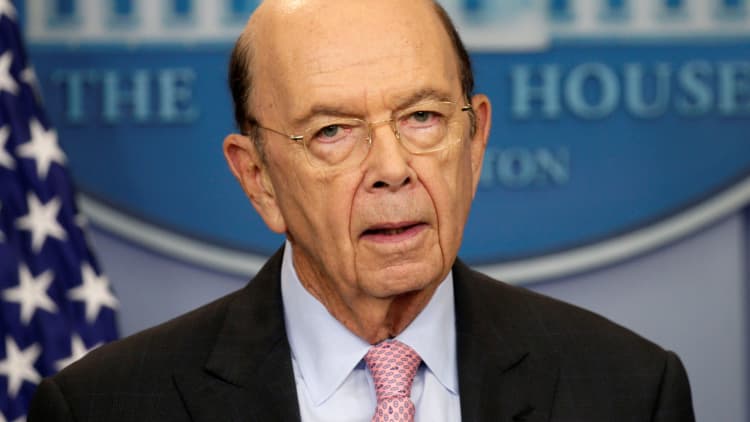
As businesses in the United States, China and beyond sorted through the details of the new U.S.-China trade agreements, many said they are disappointed that the 100-day plan missed larger issues such as overcapacity, forced technology transfer and equal treatment of U.S. companies.
"Meaningful, yes. All progress on market access is well-received by the business community. However, many of these issues have been part of ongoing bilateral discussions for years and many more barriers need to be resolved," said James Zimmerman, a Beijing-based lawyer and former chairman of the American Chamber of Commerce in the Chinese capital.
"This is a very selected list. We have to see if the Chinese live up to their promises. [The American Chamber of Commerce] and we had all hoped for a broad opening of the market, not a piecemeal opening due to political pressure," Joerg Wuttke, president of the European Chamber of Commerce in China, told CNBC.
However, the deal could still benefit many important companies and industries:
1) Beef and poultry producers
The U.S. has been lobbying for China to open up its market to American beef for years — it was banned in China in 2003 after a mad cow disease scare. The perception among some businessmen in the country has been that the Chinese have been sitting on the beef issue until the U.S. agreed to buy cooked poultry products made in China.
Under the new plan, U.S. beef is to be imported to China "no later than July 16." Chinese poultry exports are to be realized "as soon as possible."
The U.S. beef industry is an obvious winner. "Beef is a great symbolic move by the Chinese government," said Jake Parker, vice president of the U.S.-China Business Council, which has been advocating for a lifting of the ban. American companies with production in China, such as Cargill, could also benefit
2) Agro-biotech companies
U.S. companies that make biotech seeds have been trying to get their genetically modified seeds approved by China's Ministry of Agriculture. Under the new plan, China is requested to make decisions on outstanding safety certificates that would eventually allow the sale of those GMO seeds in China — potentially along with other U.S. biotech products. Companies eyeing China's market include , and .

3) Credit card providers
Credit card companies such as , and have long been frustrated with the lack of access to the Chinese market. President Barack Obama's administration brought the case against Beijing to the World Trade Organization and won in 2012.
Even so, uncertain regulations have prevented these companies from applying for licenses to issue yuan credit cards. Under the new plan, China has agreed to give "full market access" to electronic payment services providers and is expected to issue implementation guidelines by mid-July.
In the meantime, Chinese card issuers such as the local banks will have the option to issue dual-branded cards — which would help boost the market share in China of these American credit card companies.
"We welcome today's announcement, of course, and we look forward to having full and prompt market access in China," said a representative for MasterCard in China.
4) Credit ratings agencies and two financial institutions
Credit
In addition, under the new deal, China will issue both bond underwriting and settlement licenses to two qualified U.S. financial institutions by July 16. recently became the first U.S. bank to obtain a bond underwriting license in China outside of a joint venture. received a bond settlement license around the same time.
The 10-point trade plan addresses other industries such as energy, but China watchers say it doesn't go far enough to tackle President Donald Trump's goal of job creation.
"China just got a steady supply of liquefied natural gas, which will also reduce the deficit but not really add up to many, if any, U.S. jobs," said James McGregor, China chairman of APCO Worldwide. "I guess that helps with the administration's focus on the deficit, but it would be good to see some action on Made in China 2025 and the other very aggressive industrial policies."
The Trump administration may have scored some political points with Beijing by referencing the importance of the Belt and Road Initiative — an economic plan unveiled by President Xi Jinping and to be discussed in a two-day meeting in Beijing starting Sunday.
"President Trump is a clever man and he is now looking for global investors, including Chinese investors," Xu Hongcai, an economist at the China Center for International Economic Exchanges, told CNBC. "This will help in U.S. economy in infrastructure, ports, bridges, railways and roads — areas where the U.S. is weak and China has advantages. China can expand its investments in these areas."
— CNBC's Daisy Li contributed to this report.
Watch: You may soon be buying imported Chinese chicken



